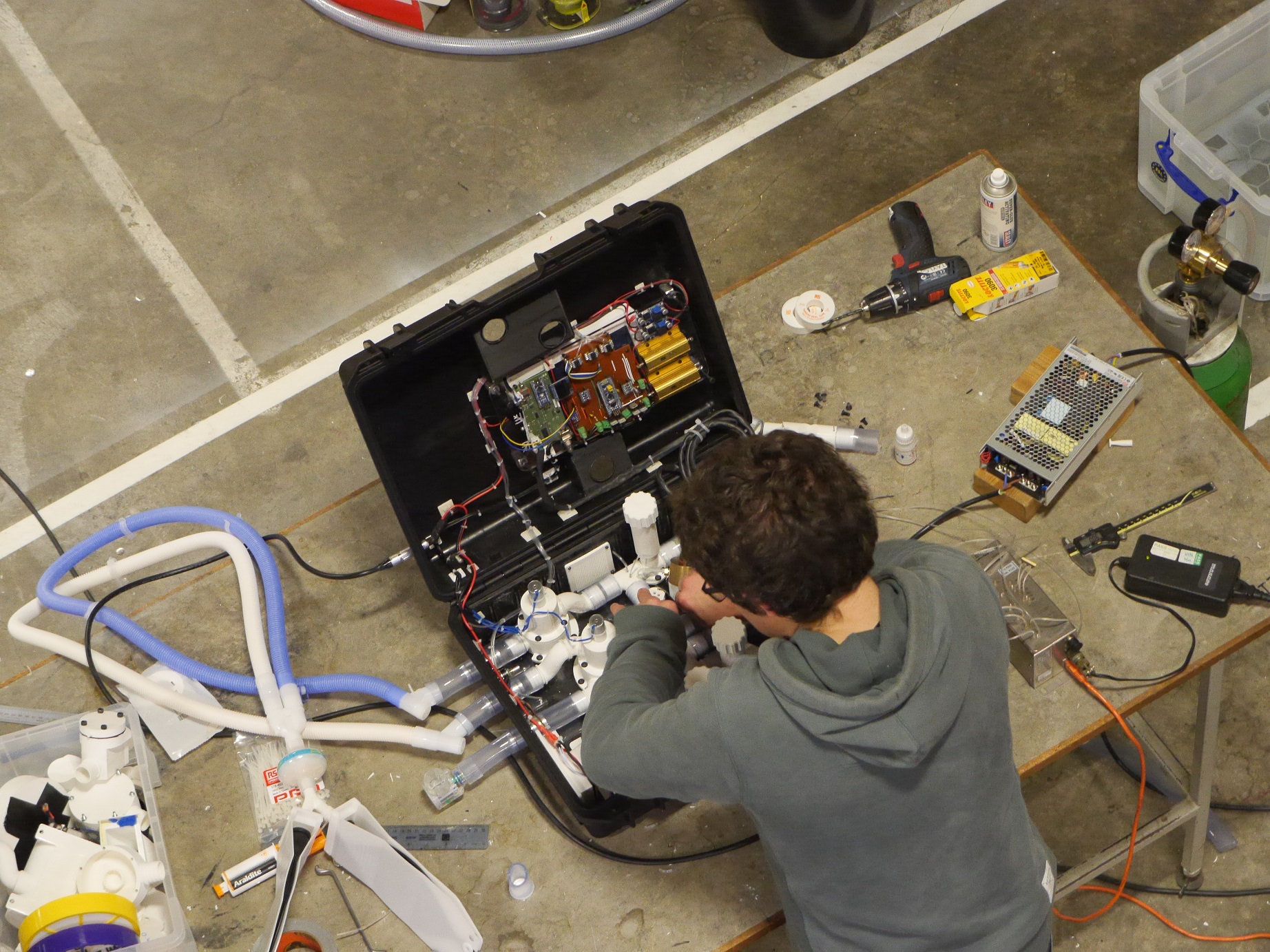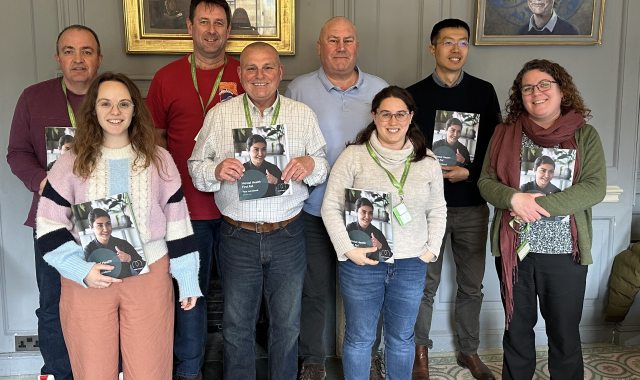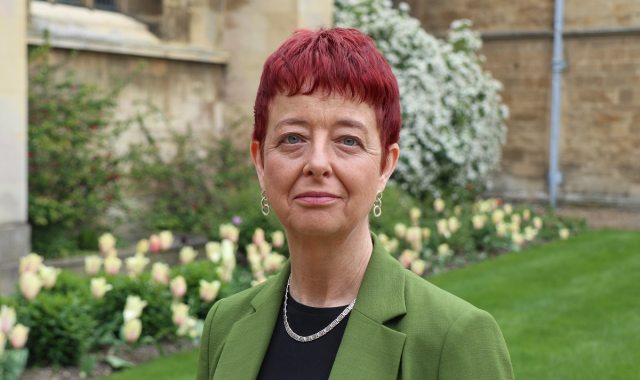Caians lead initiative to build robust and affordable ventilator
- 20 April 2020
- 4 minutes
An international team of engineers, clinicians, and scientists, including Caius Fellows Professor Axel Zeitler and Professor Rob Miller, Bye-Fellow Dr Zoë Fritz, and many other Caius Fellows and Students, have developed a low-cost medical ventilator that is designed to save lives in low and middle-income countries such as countries in Africa.
The Open Ventilator System Initiative, or OVSI for short, was designed amidst the COVID-19 pandemic, but its affordable and easy to manufacture design will allow it to be made by large in-country engineering companies around the world, meaning the benefits of this technology can be reaped for many other applications.
According to recent tentative estimates, published by WHO, there could be as many as 10 million cases of COVID-19 in Africa within three to six months, resulting in anywhere between 300,000 and 3.3 million deaths. Furthermore, there are 10 countries in Africa that do not have any ventilators at all.
The project is led by Caius Fellow Axel Zeitler, Professor at the Department of Chemical Engineering and Biotechnology. He said, “Clinicians told us the ventilator needed to cover the wide spectrum of patient ventilation requirements, and therefore work in three modes – non-invasive, mandatory or patient-triggered ventilation.
“We also know that oxygen availability varies within countries, hospitals and wards. The system must use the smallest amount of oxygen possible, but include the potential to add an oxygen concentrator.”
The ventilator was designed and built by a team based at the University of Cambridge’s Whittle Laboratory, under the direction of another Caius Fellow Professor Rob Miller. He said, “Critical to this project has been the speed of technology development. In recent years, the primary focus of the Whittle Laboratory has been to accelerate the process of technology development. By merging the digital and physical systems integral to the technology development process and by using Formula 1 style teams, the time required to develop technology has been cut by between 10 and 100 times. This capability allowed us to develop the first prototype in under a week.”
The team have taken an Inclusive Innovation approach to the design, production and distribution of ventilator systems, and as Axel explained, “OVSI is designed to avoid one of the main pitfalls of many humanitarian efforts – the donation of equipment to developing countries that is not used because it is not appropriate.” Instead, the project is a “massive team effort” including “a number of groups that naturally would not work on projects as a default together from all over the world”. This interdisciplinary collaboration is the real key to developing a sustainable solution for developing countries.
 The consortium includes a host of Caius connections; Ivo Dawkins, an engineering undergraduate and PhD student at Caius lead the development of a number of critical components including the flow measurement systems. This also involved him turning hand to new areas of expertise, playing a key part in the medical certification team. Aaron Fleming, a 5th year medic who did engineering as his part 2, worked on the user interface of the instrument remotely from Northern Ireland. Lucia Corsini, a postdoc at the Engineering Department and former undergraduate and PhD student at Caius, is part of the project’s in-country engagement team exploring how to support local manufacturing in Africa and bring the project to the community threatened by the pandemic. Joel Ratnasothy, a Caian-by-osmosis through wife Zoë, has been instrumental in linking clinical aspects of the project with the engineering team and accelerating the overall project.
The consortium includes a host of Caius connections; Ivo Dawkins, an engineering undergraduate and PhD student at Caius lead the development of a number of critical components including the flow measurement systems. This also involved him turning hand to new areas of expertise, playing a key part in the medical certification team. Aaron Fleming, a 5th year medic who did engineering as his part 2, worked on the user interface of the instrument remotely from Northern Ireland. Lucia Corsini, a postdoc at the Engineering Department and former undergraduate and PhD student at Caius, is part of the project’s in-country engagement team exploring how to support local manufacturing in Africa and bring the project to the community threatened by the pandemic. Joel Ratnasothy, a Caian-by-osmosis through wife Zoë, has been instrumental in linking clinical aspects of the project with the engineering team and accelerating the overall project.
Axel said, “What makes our project unique is that we are working openly and in partnership with others around the world. On the team we all share the vision that this will make a lasting difference for the communities we are working with. A team of almost 60 engineers and scientists has worked tirelessly over the past weeks to develop a ventilator specifically for African countries that is potentially only a tenth of the cost of existing models.”
The first manufacture will be led by Defy Ltd, the leading southern African manufacturer of domestic appliances, and Denel Ltd, a South African state-owned company. Evren Albas, CEO of Defy Appliances in South Africa said “Defy’s flexible manufacturing capabilities in Africa, together with the design and development expertise of the consortium with whom we are partnering, will allow us to fast-track ventilator production and distribution. Teams are working around the clock to start production by May.”
These manufacturers will play an important role in meeting the growing demand for high-quality ventilators during the COVID-19 pandemic and beyond.
For more information on the OVSI ventilator and an explanation of how it works visit ovsi.org.


